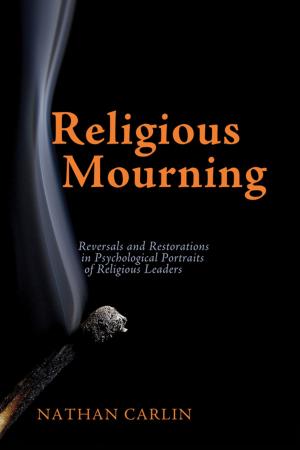Postcolonial Voices from Downunder
Indigenous Matters, Confronting Readings
Nonfiction, Religion & Spirituality, Christianity, Church, Church & State| Author: | ISBN: | 9781532605871 | |
| Publisher: | Wipf and Stock Publishers | Publication: | June 9, 2017 |
| Imprint: | Pickwick Publications | Language: | English |
| Author: | |
| ISBN: | 9781532605871 |
| Publisher: | Wipf and Stock Publishers |
| Publication: | June 9, 2017 |
| Imprint: | Pickwick Publications |
| Language: | English |
How do indigenous matters inform, irritate and advance postcolonial theologies and postcolonial biblical criticisms? What options emerge from confronting readings of religious, customary, scriptural, political and cultural texts, traditions, leanings, bodies and anxieties? These two questions epitomize the concerns that the contributors address in this collection. The postcolonial voices that come together between the covers of this book show that indigenous subjects and heritages do matter in the theological and hermeneutical business, for we all have something to learn from First Peoples, and that theologians and biblical critics have much to gain from (and offer to) confronting and troubling traditional views and fears. Together in this book, the postcolonial voices from Downunder (geographically: Oceania, Pasifika; ideologically: marginalized, minoritized) confront political and religious bodies, including Christian churches, on account of their participation in and justification of the occupation and poaching of native lands, wisdom, wealth, and titles. This book is for First Peoples and Second Peoples, whether they are down under or up yonder, who are curious about possible advents of postcolonial theologies and postcolonial biblical criticisms in the future.
How do indigenous matters inform, irritate and advance postcolonial theologies and postcolonial biblical criticisms? What options emerge from confronting readings of religious, customary, scriptural, political and cultural texts, traditions, leanings, bodies and anxieties? These two questions epitomize the concerns that the contributors address in this collection. The postcolonial voices that come together between the covers of this book show that indigenous subjects and heritages do matter in the theological and hermeneutical business, for we all have something to learn from First Peoples, and that theologians and biblical critics have much to gain from (and offer to) confronting and troubling traditional views and fears. Together in this book, the postcolonial voices from Downunder (geographically: Oceania, Pasifika; ideologically: marginalized, minoritized) confront political and religious bodies, including Christian churches, on account of their participation in and justification of the occupation and poaching of native lands, wisdom, wealth, and titles. This book is for First Peoples and Second Peoples, whether they are down under or up yonder, who are curious about possible advents of postcolonial theologies and postcolonial biblical criticisms in the future.















